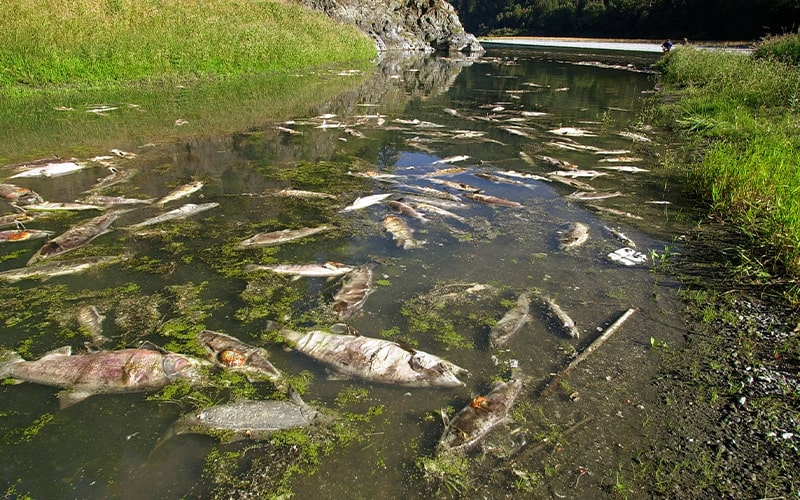A drought that has plagued the Klamath Lake, which is along the California -Oregon basin, for over twenty years has affected the reproduction of fishes in the region because the lake’s water level has decreased and fallen below the mandated water levels that aids fish reproduction and subsequent farming.
The farmers draw their water from the 96-square-mile (248-square-kilometer) Upper Klamath Lake, which is also home to sucker fish. The fish are central to the Klamath Tribes’ culture and creation stories, and were for millennia a critical food source in a harsh landscape.
In 1988, two years after the tribe regained federal recognition, the U.S. Fish and Wildlife Service listed two species of sucker fish that spawn in the lake and its tributaries as endangered. The federal government must keep the extremely shallow lake at a minimum depth for spawning in the spring and to keep the fish alive in the fall when toxic algae bloom suck out oxygen.
This year, amid exceptional drought, there was not enough water to ensure those levels and supply irrigators. Even with the irrigation shut-off, the lake’s water has fallen below the mandated levels – so low that some sucker fish were unable to reproduce, said Alex Gonyaw, senior fish biologist for the Klamath Tribes.
The youngest sucker fish in the lake is now nearly 30 years old, and the tribe’s projections show both species could disappear within the next few decades. It says, even when the fish can spawn, the babies die because of low water levels and a lack of oxygen. The tribe is now raising them in captivity and has committed to “speak for the fish” amid the profound water shortage.
“I don’t think any of our leaders, when they signed the treaties, thought that we would wind up in a place like this. We thought we would have the fish forever,” said Don Gentry, Klamath Tribe’s chairman. “Agriculture should be based on what is sustainable. There are too many people after too little water.”
But with the Klamath Tribes enforcing their senior water rights to help sucker fish, there is no extra water for downriver salmon – and now tribes on different parts of the river find themselves jockeying for the precious resource.
The Karuk Tribe last month declared a state of emergency, citing climate change and the worst hydrologic conditions in the Klamath River Basin in modern history. Karuk tribal citizen Aaron Troy Hockaday Sr. used to fish for salmon at a local waterfall with a traditional dip net. But he says he hasn’t caught a fish in the river since the mid-1990s.


Comments are closed.